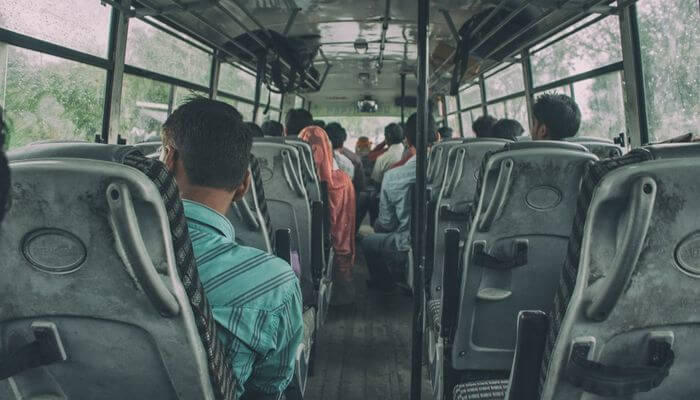17 Common Travel Mistakes And How To Avoid Them
Planning a trip abroad, particularly your first, is an thrilling experience. Engaging in travel inspirations on Pinterest and Instagram, selecting the ideal backpack, and utilizing platforms like Skyscanner and Agoda for budget-friendly deals sets the stage for your upcoming adventure. However, if your travel preparations conclude here, you risk encountering common travel mistakes that are typically avoidable. Drawing from personal experiences, this article sheds light on what not to do while traveling.
Navigating visa requisites, steering clear of tourist scams, adapting to voltage disparities, acquainting yourself with local customs, and adhering to travel etiquette demands more meticulous planning compared to local outings. That being said, investing time and effort in preparations can prove invaluable. Armed with these insightful travel tips, you can sidestep common and costly travel mistakes and relish your trip to the foreign country.

17 Common Travel Mistakes and How to Avoid Them
1. Having an Overly Ambitious Itinerary
“Venturing into Shanghai for three days? We absolutely must explore Pudong, the Former French Concession, and Lujiazui, saunter along Nanjing Road, and embark on day trips to Hangzhou, Suzhou, and Zhujiajiao…” It sounds ambitious!
One of the most common travel mistakes is cramming too many activities and destinations into a single trip. An overly ambitious traveler often spends a significant portion of their vacation shuttling between attractions they aim to visit. The situation worsens when insufficient time is allocated for transitions between connecting flights, trains, or other modes of transportation.
To avoid this common travel mistake, it is essential to embrace a flexible mindset and prioritize items on your itinerary. Be open to adjusting your travel plans in response to factors like traffic congestion, weather conditions, or budget constraints. Understanding the logistics of traveling from point “A” to point “B” and estimating the required time is crucial for a smoother travel experience.
2. Not Organizing Things Before Embarking on Your Trip
Before embarking on an international trip, there are numerous arrangements to handle. Ahead of hitting the road, ensure that you organize all necessary tasks at your residence.
From tending to plants, clearing up your desk, setting up your away email message, there are a myriad of responsibilities to address before your departure.
In essence, preparing your home for an extended absence involves a range of tasks, varying from simple actions like adjusting your radiator to more complex endeavors such as implementing DIY solutions to keep your plants watered during your absence.
Coordinating babysitting for your children or arranging pet sitting services for your furry companions (if they are not accompanying you) can add to the complexity of preparations.
To avoid common and costly travel mistakes, it is essential to ensure that all arrangements are in place and finalized before you set off on your journey.

3. Overpacking
When embarking on extended trips far from home, there’s often a temptation to believe that a considerable amount of possessions and large suitcases are necessary for storing all your belongings.
However, seasoned travelers adhere to a different philosophy, opting to pack only essential items and medications for existing medical conditions. The key principle is to pack items you genuinely require and will use, rather than what you assume you might need.
The allure of packing clothes for various weather conditions and unnecessary personal items may be strong. But there are numerous advantages to traveling with fewer belongings.
Foremost, minimizing your luggage helps you steer clear of exorbitant fees for overweight baggage. For instance, many airlines in Asia enforce strict weight limits, typically allowing only 7 kilograms of total baggage weight per passenger, irrespective of the number of bags carried.
While airlines may provide additional baggage allowances for intercontinental travel, why miss out on the joy of shopping abroad? Purchasing clothing in foreign locales can often be more cost-effective, and the new acquisitions may seamlessly integrate into your wardrobe upon your return.
4. Forgetting to Notify Your Bank Before Traveling
This is one of the biggest do’s while planning a trip! If your bank suddenly notices foreign transactions from your account, they may put a hold on it as a temporary measure. They do this to avoid credit card fraud. There’s nothing scarier than being locked out of your bank account when you’re in a foreign country without access to cash.
The best way to get around this is by informing your bank and credit card merchant of your travel plans ahead of time. You can easily do it online by setting up a travel notification. As far as I know, some credit card companies even offer rewards and special pricing deals on travel insurance for travelers. This is one of the essential tips that will help you plan a trip.
4. Not Checking Your Cell Phone Plan
Understanding the coverage of your cell phone plan is crucial to steer clear of excessive roaming charges. Assuming that international travel is automatically covered by your cell phone plan can result in a ruined vacation and an exorbitant phone bill.
Each carrier has distinct policies regarding international travel, which might entail procuring a specialized prepaid plan offering a predetermined amount of call time and messages or acquiring a local SIM card to facilitate calls while in a different country.
Alternatively, you can switch your phone to airplane mode and access a Wi-Fi network. Nonetheless, if data usage is significant for you, it is imperative to arrange for a suitable plan before embarking on your travels.
5. Forgetting to Inform Your Bank About Your Trip
This stands as a crucial step when organizing a trip! In instances where your bank detects foreign transactions in your account, they might temporarily freeze it to prevent credit card fraud.
Encountering a situation where you are locked out of your bank account while in a foreign country with no access to funds can be quite distressing.
The most effective approach to avoid this issue is by proactively informing your bank and credit card provider about your travel arrangements in advance.
This can conveniently be done online by setting up a travel notification.
Additionally, some credit card companies offer rewards and exclusive pricing deals on travel insurance for travelers. This tip is among the essential guidelines that can help you avoid travel money mistakes.
6. Neglecting to Carry Emergency Cash
An emergency fund serves as a distinct component of your travel budget, reserved exclusively for unforeseen circumstances and not intended for shopping or tours.
It is advisable to stash a portion of your emergency cash in your hotel room while ensuring you have some money on hand. Not all establishments accept credit cards, and finding yourself stranded in an unfamiliar location without cash can be quite distressing.
Various unexpected scenarios can unfold during your travels. You might misplace your wallet, fall victim to theft, encounter malfunctioning ATMs, or face non-operational credit card terminals.
Money belts emerge as a clever solution to safeguard your funds while journeying. Typically, setting aside around $200 per person should suffice to address unforeseen events.

7. Forgttting To Double-Check Your Documents
Essential items to carry on your travels include your visa, passport, ID, driver’s license, credit cards, and other pertinent documents.
Never leave these crucial documents behind. Always ensure you have them in your possession and conduct a thorough double-check.
In one of my memorable road trips, I forgot my driver’s license—an amusing anecdote in hindsight, but far from amusing when I discovered it at the rental car counter.
For those inclined towards organization, investing in a stylish passport holder might be a worthwhile consideration. Additionally, confirm the validity of your passport.
Many countries worldwide adhere to a six-month passport validity rule, stipulating that your passport must remain valid for at least six months post-trip. Furthermore, having one blank page in your passport for entry stamps is essential.
Regrettably, one often overlooked document is the international driving permit. While some rental companies mandate its possession, and certain countries consider driving without it illegal, my personal experiences renting vehicles in Kazakhstan, Australia, Turkey, Thailand, and numerous other destinations have rarely required its presentation. Nevertheless, I uphold the belief that it is a prudent measure to possess one, just in case.
8. Not Getting Travel Insurance
Quality travel insurance serves as a safety net in unpredictable situations and destinations, safeguarding you against costly travel mistakes during your trip. The clincher, however, is that most of the time, you may not end up needing it.
This can create a false sense of security, potentially luring you into believing you can go without it. You might also fall into the trap of assuming that skipping travel insurance is a cost-saving measure, especially if your previous trips abroad went smoothly without requiring it.
Yet, resist the urge to take unnecessary risks. Traveling without insurance is a gamble not worth making. Medical expenses in foreign lands can be exorbitant, leading to insurmountable debts in worst-case scenarios. Even routine medical procedures or consultations can rack up bills in the hundreds of dollars.
Travel insurance is a must-have
Fortunately, the array of insurance companies available today is more extensive than ever before.
World Nomads caters to travelers seeking coverage for various trip essentials, including sports and adventure activities.
SafetyWing offers affordable insurance tailored for backpackers, long-term travelers, and digital nomads.
Apart from health coverage, travel insurance extends to a host of other essential aspects such as rental car protection, lost baggage, stolen devices, trip cancellations, flight delays, and more, offering comprehensive protection.
Avoid the travel mistake of overlooking the details of your coverage. When I hiked the Lycian Way some years back, I knew my insurance had to encompass medical expenses while traveling international. While this may have incurred additional costs, it paled in comparison to the potential expense of a $3,000 to $7,000 helicopter evacuation in case of an emergency.
Whether rafting in Zimbabwe or engaging in other activities, ensure your insurance policy covers the relevant sports and adventures. Thoroughly review what is included and excluded in your coverage.
Additionally, a reputable insurance provider should offer 24/7 support for travel emergencies, a crucial component to confirm within your package.

9. Neglecting to Familiarize Yourself With the Local Culture & Laws
Failure to understand the local culture and laws can lead to unintended consequences when traveling. It is one of the biggest mistakes people make when traveling.
Each country possesses distinct laws and customs, where actions deemed acceptable in one place might be offensive in another. Assuming that you can behave abroad as you do at home can potentially land you in trouble.
For instance, conservative nations often enforce stringent dress codes, necessitating awareness prior to packing. While tipping is actually considered rude in the countries like Japan, China, and South Korea.
When camping in Colorado, it is crucial to maintain a food-free campsite due to the presence of black bears. Leaving food unattended can result in hefty fines.
In countries like Thailand, although diverse clothing styles are visible on the streets, it’s still customary to cover certain body parts when entering temples. Carrying a lightweight sarong can prove handy in such scenarios.
It is evident that each country and situation is unique, highlighting the importance of acquainting oneself with the fundamental rules and customs of the area being visited. Exploring diverse cultures is a significant motivation for my travels.
Whether embarking on a road trip or navigating local roads, it is essential to acquaint yourself with the driving laws of the region.
Differences such as driving on the opposite side of the road in countries like Japan or Cyprus, as well as variations in speed limits and road regulations, underscore the need for awareness and adaptation while driving in different countries.
10. Ignoring the Weather
Although weather forecasts are not infallible, they provide valuable insights into the expected weather conditions during your trip.
During my to Mount Bromo, the local weather agency issued an earthquake alert for East Java—coincidentally, the direction I was traveling. Indonesia is known for experiencing daily seismic activity, but the heightened alerts prompted by the weather agency led me to pay closer attention.
Indonesian agency for meteorological, climatological and geophysics recommended monitoring their updates daily and having contingency plans in place in case of any alterations. Adhering to their guidance incurred no additional expenses, and I remained prepared to adjust my itinerary promptly if necessary.
While weather warnings are crucial, they are not the sole travel advisories you may encounter during your travels.
11. Failing to Heed Travel Warnings
Always ensure to review travel warnings and advisories before embarking on international travel. Every country issues these alerts, and it’s crucial to study them attentively.
Certain destinations may not be deemed safe for travel, prompting serious consideration regarding the wisdom of visiting such places.
Interestingly, each country holds a distinct perspective on travel safety. South America, for example, carries a rather dubious reputation for safety concerns.
In my travels, I often cross-reference travel advisories from European and U.S. agencies. For instance, when contemplating a trip to Mexico, reading the U.S. report tends to offer more reassurance.
Each time I peruse the report from the U.S. embassy, it evokes a certain unease that may deter us from considering travel to that particular country.
The notable contrast between these two reports underscores the importance of taking them with a degree of skepticism while still acknowledging their significance. It is advisable to approach these reports thoughtfully rather than disregarding them entirely.

12. Failing to Stay Hydrated
Overlooking the importance of hydrating your body while on the go is a common travel mistake. Your body relies on water for survival, and adequate hydration is essential for maintaining overall good health.
During long and strenuous days on the road, it is crucial for your body to remain hydrated to function optimally, with plain water being the best choice.
Opting for tap water is not only beneficial for hydration but also helps reduce the use of single plastic bottles, thereby minimizing your plastic footprint.
Even in areas where the water may not be potable, using a SteriPen or a water bottle with a filter can help purify it for consumption.
Hydration becomes even more critical in high altitudes or regions with extreme temperatures. Whether you are climbing a volcano in Bali or hiking in Grand Teton National Park, Wyoming, maintaining hydration throughout the day is paramount.
While individual water needs may vary, a general rule of thumb is that if you feel thirsty, you are likely already slightly dehydrated.
13. Not Having a Plan B
Not having a contingency plan is a common travel mistakes for beginners. While I wish for smooth sailing during your trip, unforeseen circumstances can arise and disrupt your vacation.
From flight delays to canceled tours or road closures, numerous factors can throw a wrench into your plans. I could provide numerous examples, but the essential message remains clear.
One of the most valuable travel tips emphasizes the importance of being adaptable and always having a plan B in place.
Having a contingency plan not only allows you to rest easier at night but also ensures that you can swiftly recover should any mishaps occur.
Additionally, take the time to note down the addresses and contact numbers of your embassies or consulates in the countries you intend to visit. This information can prove invaluable if the need arises to reach out to them for assistance.
Some countries even offer online trip registration services, although this depends on the availability of a similar database in your home country.
14. Carrying Valuables
If I could offer just one crucial tip to ensure a stress-free vacation, it would be to leave your valuables at home.
While there are ways to safeguard your valuables while traveling, the safest option is often to refrain from bringing them along.
Although some countries and destinations are relatively safe, incidents of opportunistic theft can still occur. Conversely, there are regions notorious for poor safety reputations, heightening the risk of something going amiss when carrying valuables.
Numerous countries worldwide advise against flaunting valuables openly to avoid becoming a target for theft.
While using a money belt or travel pouch can mitigate the risk of falling victim to pickpockets, it is challenging to conceal large items like expensive cameras or precious jewelry.
My travel recommendation is to reassess what you truly need during your trip and opt to leave unnecessary valuables in a hotel safe or, ideally, secure them at home.
15. Avoid Exchanging Money at the Airport
Opting for currency exchange services at airports is akin to squandering your money. Exchange rates in these locations tend to be highly disadvantageous, and it’s advisable to avoid them whenever possible.
Instead of exchanging money at the airport, consider using a credit card for transactions or withdrawing cash from ATMs. If exchanging money becomes necessary, ensure to convert only the minimum amount essential for your immediate needs.
Although you may feel secure once you depart the airport premises, the reality may differ. Many exchange outlets near major tourist sites also offer unfavorable rates, making them unwise choices for currency conversion.
Locating a trustworthy exchange bureau while traveling can be challenging, underscoring the importance of identifying one before traveling abroad.
16. Avoid Dining at Tourist Restaurants
Dining at tourist restaurants comes with a single advantage: their convenient proximity to popular attractions. However, the disadvantages significantly outweigh the benefits.
Primarily, these establishments tend to be overpriced. Their prime locations often result in limited customer competition and subpar service.
The distinction between tourist restaurants and upscale but quality dining venues can be ambiguous. While traveling, it is essential to differentiate between the two, although this may pose a challenge.
For instance, when visiting my homeland, Germany, the allure of lunch near Dresden Frauenkirche may be tempting. Despite impressive views, the food is typically exorbitant and substandard, to say the least.
A brief two-minute search on your mobile device can reveal superior dining options within a 10-minute radius, offering better cuisine and service at a more reasonable price.
Similar scenarios exist in every tourist city, prompting me to venture at least ten minutes away from these bustling areas to discover hidden culinary gems.
17. Having Unrealistic Travel Expectations
Anticipation surges when planning a long-awaited journey to a dream destination. After months of dedication and hard work, the prospect of visiting a place you’ve longed for is invigorating. As all arrangements fall into place, anticipation grows, kindling our imagination.
We pore over numerous reviews, scroll through social media feeds, and construct a mental picture of the destination, adorned with picture-perfect postcard images and captivating scenes of natural beauty. This process of envisioning brings immense joy, doesn’t it?
However, the reality often falls short of our expectations. Rarely do things unfold exactly as planned, and even the most renowned or coveted destinations can sometimes disappoint. Reality has a way of surprising us, regardless of the location, and sometimes, it can be quite jarring.
It’s perfectly normal to eagerly anticipate a destination, but it’s crucial to temper those expectations. Understanding that reality may diverge from our idealized visions is essential.
Approaching your trip with an open mind and a flexible attitude is the best way to embark on your adventure. Keeping expectations modest can lead to a more genuine and fulfilling travel experience.
Final Thoughts on the Common Travel Mistakes
Traveling abroad comes with its challenges, yet with adequate preparation, you can sidestep common travel mistakes. By planning ahead and anticipating unforeseen circumstances, you can alleviate stress and thwart any potential disruptions to your journey. Remember to take your passport along as you’re heading out.
Have you made any of these travel mistakes? What are the travel mishaps you’ll never forget? Like this post? Please share it on social media using the share buttons below and on the left!





Sorry, the comment form is closed at this time.